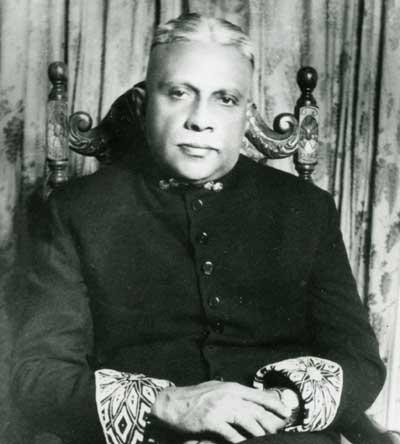Not forgetting A. E. Goonesinha
Historical figure and Sri Lanka’s first Labour Leader
Source:Dailymirror
Born on 1st May 1891 in Kandy, A. E. Goonesinha was educated at Dharmaraja College in Kandy and St. Josephs College in Colombo. He started his professional career as a journalist and publisher of the Journal “Search Light” to support the National Movement.
A. E.Goonesinha was a man of principle, of decency and of conscience who fought for the workers’ rights and against the British government that ruled Sri Lanka for their profit and benefit. They ill-treated the workers and made slaves out of them. It was A. E. Goonesinha together with other stalwarts who went to prison, risked being shot and overcame with great bravery the resistance by the British rulers to celebrate 1st May as Worker’s Day and to give the worker trade union rights and respect for the profession.
Goonesinha’s political career marked the formation of the Ceylon Labour Party. First, the Ceylon Labour Union was inaugurated in September 1922 with Victor Corea as President and A.E.Goonesinha as Secretary. Then, on 15, October 1928, the Ceylon Labour Party was formed with Goonesinha as President and Proctor Marshall Perera as Secretary, and Messrs. C. E.Corea, C. H. Z. Fernando, C.W.W. Kannangara and George E. de Silva in the committee. The CLP was formed, after having had contacts with the Labour Party of Great Britain. In fact when Ramsay McDonald, the British Labour Party Leader and Prime Minister visited Ceylon in 1926, Goonesinha received him on behalf of the Ceylon Labour Movement.
Goonesinha was proclaimed a National Hero in July 1928 when he represented Ceylon at the British Empire Labour Conference, London, and was responsible in obtaining for Ceylon the Universal Adult Suffrage(Universal Franchise) from the Donoughmore Commission in 1928. A.E. Goonesinha and the Ceylon Labour Union were the only advocates of the grant of Universal Franchise which the Ceylon National Congress vehemently opposed.
At the State Council elections held in 1931 Goonesinha was elected on the Labour Party ticket as Member for Colombo Central Electoral District, and he repeated this feat in 1936. In 1940 he was elected to the Colombo Municipal Council and in 1943 became the first Ceylonese Mayor of Colombo. In the 1947 Parliamentary election, he was elected as the first Member for the Colombo Central Seat (three Member seat) in Parliament and was appointed Chief Government Whip in the UNP government, Minister without Portfolio and Minister of State of the First Parliament of Ceylon then known as the House of Representatives of Ceylon led by Prime Minister D. S. Senanayake. Goonesinha was later appointed as Ceylon’s Ambassador to Indonesia and Burma.
A.E. Goonesinha was neither “Left” nor “Right”, he was a democrat at heart, a social democrat, championing the labour cause. He created paths and thus made history as a prominent freedom fighter and national hero, social worker, advocate of the poor, politician and trade union leader. He is remembered today as the father of Sri Lanka’s Trade Union Movement. Labour Day or May Day was first held in Ceylon in 1927 under his leadership – the first Labour Leader of Sri Lanka.
Mr. Goonesinha’s devoted follower and an eloquent speaker in the Ceylon Labour Party, the late President Ranasinghe Premadasa, renamed Price Park in Pettah “Goonesinhapura” as a tribute to this leader of the workers. Price Park was where Goonesinha held the trade union and political meetings led by him, and where large crowds gathered to listen to the speeches of Goonesinha and other contemporary leaders. This area is now known as “Goonesinha Park”. As a mark of honour, A.E. Goonesinha’s statue has been erected at the entrance to Goonesinhapura, showing him with a hammer in hand breaking rock stones for Civil Disobedience in not paying the Poll Tax and thus being instrumental in getting the Poll Tax abolished in 1925.
Coincidentially May 1st is also his birthday.May this great man’s path created for the rights of the worker not be misused and abused by contemporary politicians.








